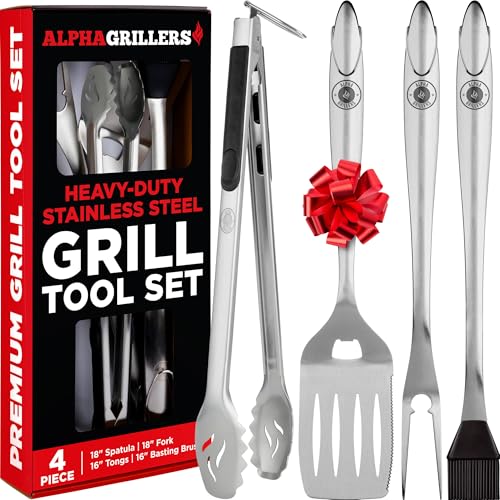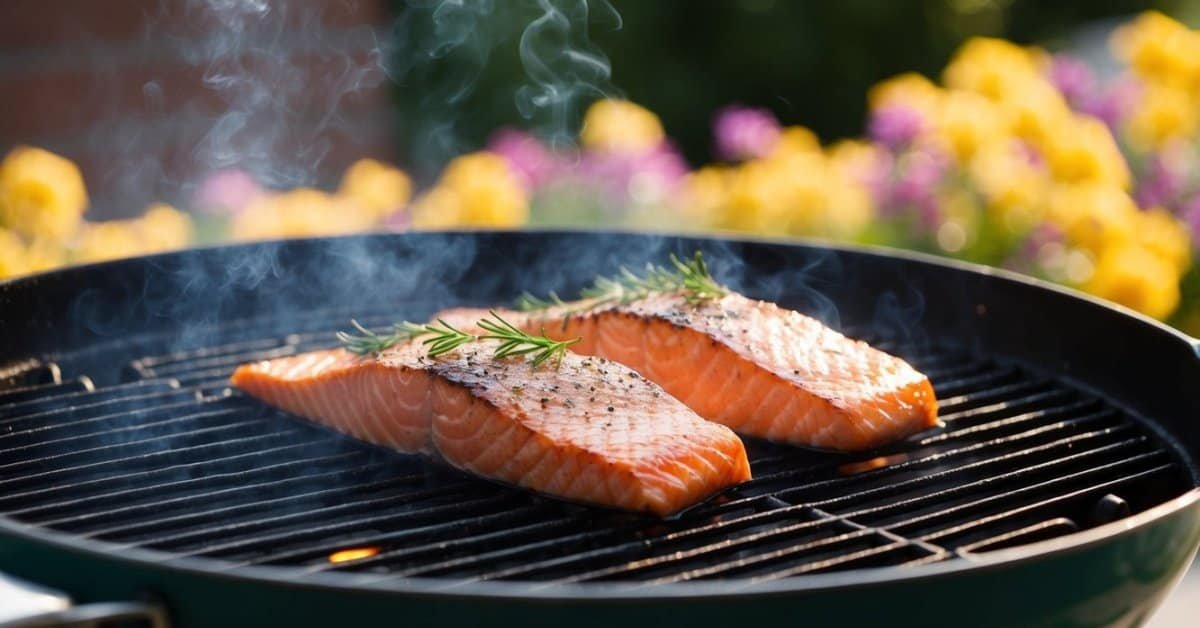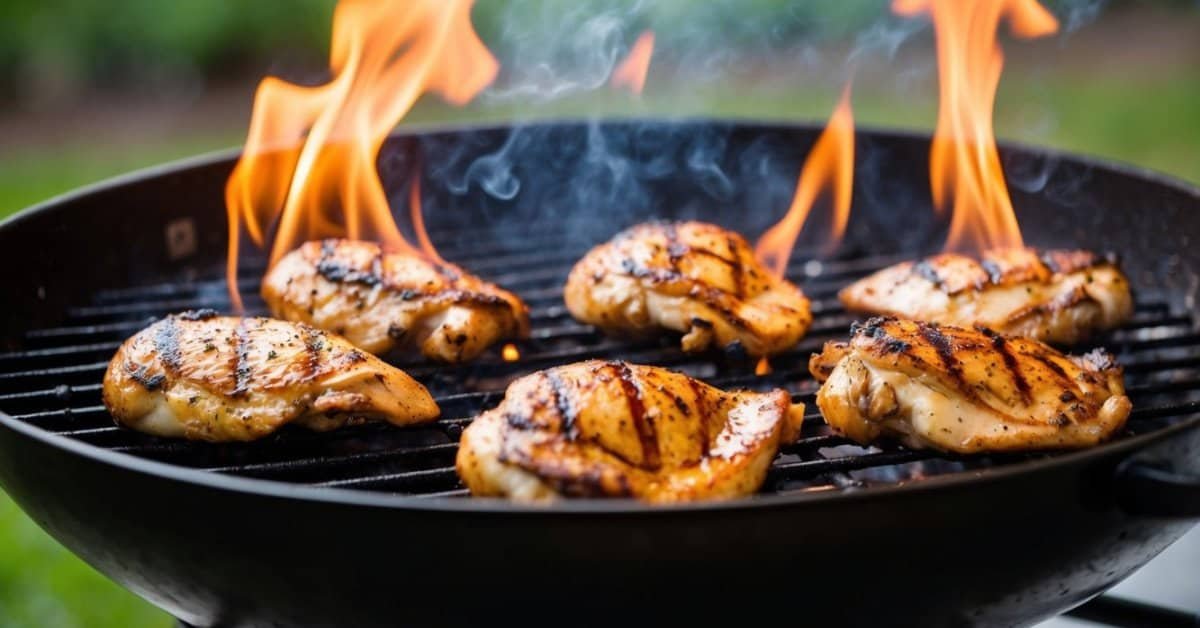
Are you in the market for a new grill but unsure whether to go with propane or natural gas? Well, you’ve come to the right place! In this article, we’ll be exploring the key differences between propane and natural gas grills, helping you make an informed decision that suits your needs. Whether you’re a seasoned grilling pro or just starting out, understanding the pros and cons of each fuel type is essential. So, let’s dive in and discover which option is best for you!
When it comes to grilling, the fuel you choose can have a significant impact on your overall grilling experience. Propane grills are known for their convenience and portability. With propane, you can easily control the temperature and get your grill up and running in no time. On the other hand, natural gas grills offer a continuous supply of fuel, eliminating the need for propane tank refills. They are typically connected to your home’s natural gas supply, making them a convenient and cost-effective option. So, which one will reign supreme in your backyard?
What is Propane?
As a seasoned grill master, you know that choosing the right fuel for your grill is essential to achieving that perfect sear and delicious char. When it comes to propane grills, convenience is the name of the game.
Propane is a clean-burning fuel that is widely used for grilling. It is stored in portable tanks, allowing you the flexibility to grill anywhere, whether it’s in your backyard, at a tailgate party, or on a camping trip. With a propane grill, you have the freedom to take your grilling skills on the road and share your delicious creations with friends and family wherever you go.
One of the biggest advantages of using propane is the easy temperature control it offers. With the turn of a knob, you can quickly adjust the heat to achieve the perfect cooking temperature for your steaks, burgers, or veggies. This precise control allows you to experiment with different cooking methods, from low and slow smoking to high-heat searing.
Additionally, propane grills offer quick setup and cleanup. Unlike charcoal grills that require time-consuming charcoal lighting and ash disposal, propane grills are ready to go with a simple push of a button. After your grilling session, cleaning up is a breeze as there are no messy ashes or charcoal residue to deal with.
When it comes to convenience, propane grills are hard to beat. However, it’s important to note that propane tanks will need to be refilled or exchanged when they run out of fuel. Make sure to keep an extra tank on hand to avoid any interruptions during your grilling adventures.
So, whether you’re a beginner looking to enhance your grilling skills or a seasoned grill master who values convenience and portability, a propane grill may just be the perfect choice for you. With its easy temperature control, quick setup, and clean-burning fuel, you’ll be well on your way to becoming the ultimate BBQ enthusiast.
What is Natural Gas?
As a grill master, it’s important to understand the differences between propane and natural gas grills so you can make the best choice for your grilling needs. Let’s start by diving into what natural gas is.
Natural gas is a fossil fuel that is primarily composed of methane, along with small amounts of other hydrocarbons and impurities. It is a clean-burning fuel that is widely used for heating, cooking, and generating electricity. Natural gas is sourced from underground reservoirs and is delivered to homes and businesses through pipelines.
When it comes to grilling, natural gas offers some distinct advantages. Here are a few key points to consider:
- Convenience: One of the main advantages of natural gas grills is that they are hooked up directly to your home’s natural gas supply. This means you never have to worry about running out of fuel or making trips to refill propane tanks. With a natural gas grill, you’ll have a continuous and uninterrupted supply of fuel.
- Cost-effective: Natural gas is generally more cost-effective than propane. While the upfront cost of installing a natural gas line may be higher, the ongoing cost of fuel is typically lower. This can save you money in the long run, especially if you grill frequently.
- Eco-friendly: Natural gas is considered a cleaner-burning fuel compared to propane. It produces fewer greenhouse gas emissions, such as carbon dioxide and sulfur dioxide, which can be better for the environment. If you’re conscious about reducing your carbon footprint, a natural gas grill may be a good option for you.
- Less maintenance: Since natural gas grills are connected to a continuous fuel supply, you don’t have to worry about refilling or exchanging propane tanks. This can save you time and effort when it comes to maintenance and setup.
Now that you have a better understanding of what natural gas is and its advantages, you can weigh the pros and cons of natural gas grills compared to propane grills. This will help you make an informed decision when it comes to choosing the right grill for your grilling adventures. So let’s move on to the next section and explore the benefits of propane grills.
Pros and Cons of Propane Grills
As a grill master, I want to help you become a better BBQ enthusiast, and that means understanding the pros and cons of different grills. Let’s dive into the world of propane grills and explore what makes them a popular choice.
Convenience at Your Fingertips
Propane grills offer unparalleled convenience. With just the turn of a knob, you can easily control the temperature of your grill, allowing for precise cooking. Whether you want to sear a steak or slow-cook some ribs, propane grills give you the flexibility to do it all.
Portability for Grilling on the Go
One of the biggest advantages of propane grills is their portability. These grills are designed to be used with portable tanks, making them perfect for taking on camping trips, picnics, or tailgating parties. You’ll never have to worry about finding a power source or carrying bulky charcoal bags. Just hook up a propane tank, and you’re good to go!
Quick Setup and Cleanup
When it comes to firing up the grill, propane grills are the winners in terms of speed. They heat up quickly, allowing you to start grilling in no time. And when you’re done, clean-up is a breeze. Unlike charcoal grills that leave behind ash and require thorough cleaning, propane grills simply need a wipe-down.
Refilling or Exchanging Tanks
Let’s talk about the downside of propane grills: the need to refill or exchange tanks. Propane tanks have a limited amount of fuel, so you’ll need to keep an eye on the gauge and plan ahead. Running out of propane in the middle of a grilling session is never fun, so make sure to have a spare tank on hand or keep track of when you need to refill.
Summary
Pros and Cons of Natural Gas Grills
As a seasoned grill master, I want to help you become a better barbecue enthusiast. Let’s dive into the pros and cons of natural gas grills, so you can make an informed decision for your grilling adventures.

Convenience and Continuous Fuel Source
« The Anatomy of a Knife: Understanding the Parts and Their Importance
All About Chuck Eye Steak: Flavorful and Affordable Cut of Beef with Tips on Buying and Cooking »
One of the biggest advantages of natural gas grills is the convenience they offer. Unlike propane grills that require you to refill or exchange tanks, natural gas grills are hooked up directly to your home’s natural gas supply. This means you never have to worry about running out of fuel in the middle of grilling. You can enjoy a continuous and uninterrupted fuel source, allowing you to focus on perfecting your barbecue skills.
Cost-Effectiveness
While there may be an upfront cost associated with installing a natural gas line, the ongoing cost of fuel is typically lower compared to propane. Natural gas is more cost-effective in the long run, saving you money on fuel expenses. So, if you’re planning to grill frequently, a natural gas grill can be a wise investment.
Environmental Benefits
Natural gas is considered a cleaner-burning fuel compared to propane. It produces fewer greenhouse gas emissions, making it a more environmentally friendly choice. By opting for a natural gas grill, you’re not only enhancing your grilling experience but also minimizing your carbon footprint.
Low Maintenance
Another advantage of natural gas grills is their low maintenance. With no need to refill or exchange tanks, you can avoid the hassle of running out of fuel unexpectedly. You also eliminate the need to store and handle propane tanks. This means less time spent on maintenance and more time enjoying your delicious barbecue creations.
Considerations
While natural gas grills offer numerous benefits, it’s important to consider a few factors before making your decision. First, ensure that you have access to a natural gas line or the ability to install one. Additionally, natural gas grills are typically stationary, so if portability is a priority for you, propane grills may be a better choice.
Safety Considerations for Propane and Natural Gas Grills
As a grill master, it’s important to prioritize safety when using propane or natural gas grills. Here are a few key considerations to keep in mind:
Proper Ventilation
When grilling with propane or natural gas, it’s crucial to ensure proper ventilation. Both fuels produce carbon monoxide, which is a colorless and odorless gas that can be harmful or even fatal if inhaled in high concentrations. Always make sure to grill in an open area, such as your backyard or a well-ventilated patio, to allow for the safe dispersal of carbon monoxide.
Regular Inspection
Regularly inspect your propane or natural gas grill to ensure that it is in good working condition. Check the hoses, burners, and connections for any signs of wear or damage. If you notice any leaks, such as the smell of gas or hissing sounds, turn off the gas supply immediately and have the grill inspected by a professional before using it again.
Proper Storage and Handling
When it comes to propane grills, proper storage and handling of propane tanks are essential. Always store propane tanks in an upright position in a well-ventilated outdoor area, away from any heat sources or open flames. When transporting propane tanks, secure them in an upright position and never leave them in a closed vehicle, as high temperatures can cause the tanks to overheat and potentially explode.
Natural Gas Line Safety
If you have a natural gas grill, it’s important to ensure the safety of the gas line. Make sure that the gas line is properly installed and maintained by a qualified professional. Regularly check for any leaks by applying a solution of soapy water to the connections and looking for bubbles. If you detect a leak, turn off the gas supply and contact a professional to address the issue.

By following these safety considerations, you can enjoy the grilling experience while keeping yourself and others safe. Remember, safety should always be the top priority when using propane or natural gas grills.
Which Grills are More Environmentally Friendly?
Let’s dive into an important aspect to consider when choosing between propane and natural gas grills: their environmental impact. As a grill master who cares about the planet, it’s essential to understand which option is more environmentally friendly.
Propane Grills
Propane grills have their advantages when it comes to being eco-conscious. Propane is a clean-burning fuel that produces lower emissions compared to other fossil fuels. When you use a propane grill, you can enjoy your delicious barbecued meals without contributing to excessive air pollution.
Additionally, propane is a byproduct of natural gas processing and petroleum refining. This means that by using propane, you are effectively using a fuel source that would otherwise go to waste. It’s a great way to reduce waste and make use of available resources.
Natural Gas Grills
On the other hand, natural gas grills offer even greater environmental benefits. Natural gas is one of the cleanest-burning fossil fuels, emitting significantly fewer pollutants than other fuel sources. By using a natural gas grill, you can minimize your carbon footprint and help protect the environment.
Moreover, natural gas is a domestically abundant resource, making it a more sustainable choice compared to propane, which is often imported. This reduces the overall transportation emissions associated with the fuel.
Conclusion
While both propane and natural gas grills have their environmental advantages, natural gas grills come out on top in terms of eco-friendliness. They produce fewer emissions, rely on a domestically abundant resource, and contribute to a lower carbon footprint.
Cost Comparison: Propane vs Natural Gas
As a grill master, it’s important to consider the cost of fuel when choosing between propane and natural gas grills. Let’s break down the cost comparison for you.
Propane Grills:
- Propane grills use propane gas, which is typically sold in 20-pound tanks.
- The initial cost of purchasing a propane tank can vary, but once you have one, you can easily refill or exchange it at most hardware stores or propane dealers.
- On average, a 20-pound propane tank can provide around 18 to 20 hours of grilling time, depending on the heat settings and grill size.
- The cost to refill or exchange a propane tank can range from $15 to $25, depending on your location and the current price of propane.
- Therefore, the ongoing cost of propane for grilling can add up if you frequently grill or entertain guests.
Natural Gas Grills:

- Natural gas grills are connected to a natural gas line directly from your home.
- The initial cost of installation for a natural gas line may vary depending on your location and the distance from your grill to the gas source.
- However, once the natural gas line is installed, you have a continuous fuel source for your grill without the need to refill or exchange tanks.
- Natural gas is generally more cost-effective than propane, with prices per therm averaging lower than the equivalent amount of propane.
- This means that the ongoing fuel costs for a natural gas grill are typically lower compared to propane grills.
When considering the cost of fuel, it’s important to weigh the convenience of propane tanks against the lower ongoing fuel costs of natural gas. Remember, the choice ultimately depends on your grilling habits, budget, and availability of natural gas in your area.
So, now that we’ve discussed the cost comparison between propane and natural gas grills, let’s move on to the next important aspect: environmental impact.
Convenience Factors to Consider
As a grill master, it’s important to consider the convenience factors when choosing between a propane and natural gas grill. Here are a few things to keep in mind:
Easy Temperature Control
One of the main advantages of propane grills is their ability to offer easy temperature control. With a simple turn of a knob, you can adjust the flame to achieve the perfect cooking temperature. This makes it easier to cook different types of food and ensures consistent results each time. Natural gas grills also provide temperature control, but it may require some adjustments to the gas flow to achieve the desired heat.
Portability
If you’re someone who loves to take your grilling skills on the road, then a propane grill might be the better option for you. Propane grills are portable and can be easily transported to different locations, whether it’s a camping trip, a tailgate party, or a picnic in the park. Natural gas grills, on the other hand, are typically more stationary, as they require a natural gas line connection.
Fuel Availability
Consider the availability of fuel when deciding between propane and natural gas. Propane tanks can be easily refilled or exchanged at many locations, such as hardware stores or gas stations. This makes it convenient to always have a backup tank on hand. On the other hand, natural gas grills rely on a natural gas line connection, which may not be available in all areas. If you already have access to a natural gas line, then a natural gas grill can provide a continuous fuel source without the need for refilling or exchanging tanks.
Remember, convenience is key when it comes to grilling. Consider your lifestyle, grilling habits, and the availability of fuel options to make the best choice for your needs.
Conclusion
When it comes to choosing between propane and natural gas grills, there are several factors to consider. Propane grills offer the advantage of easy temperature control and portability, making them a great option for those who enjoy grilling on the go or at different locations. On the other hand, natural gas grills provide a continuous fuel source and can be more cost-effective in the long run due to lower ongoing fuel costs.
Safety is also an important consideration for both types of grills. It’s crucial to follow proper safety precautions and guidelines to ensure a safe grilling experience, regardless of whether you choose propane or natural gas.
Ultimately, the decision between propane and natural gas grills depends on your individual grilling habits, budget, and the availability of natural gas in your area. Consider your needs and preferences to make an informed choice that will enhance your grilling experience.

No matter which type of grill you choose, propane or natural gas, both can provide delicious and enjoyable meals for you, your family, and your friends. Happy grilling!















